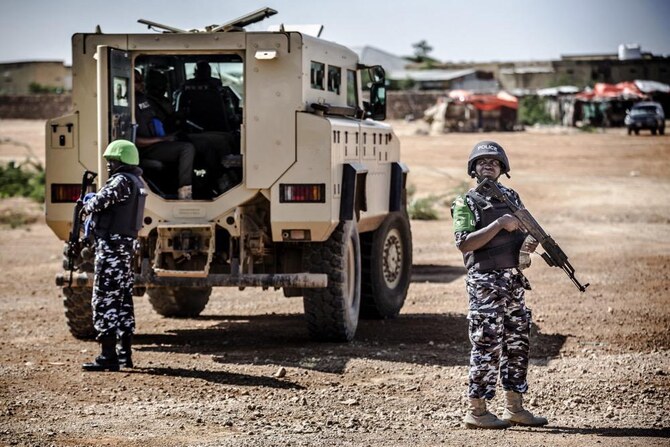Facebook Twitter (X) Instagram Somali Magazine - People's Magazine
The United Nations Security Council has authorized a new African Union mission to tackle the Al-Shabaab insurgency in Somalia. The resolution paves the way for the African Union Support and Stabilization Mission in Somalia (AUSSOM), set to replace the African Union Transition Mission in Somalia (ATMIS) when its mandate ends on December 31.
UN Approves AUSSOM Transition
The Security Council adopted the resolution with 14 out of 15 members in favor, while the United States abstained. US representatives cited concerns over funding the new mission.
AUSSOM will commence operations in January 2025, focusing on stabilizing Somalia and neutralizing the Al-Qaeda-linked Al-Shabaab group. The move reflects the UN’s continued efforts to address Somalia’s persistent security challenges after decades of civil war, insurgency, and climate-induced crises.
Bilateral Agreements in Focus
Somalia has secured troop pledges from bilateral agreements, with 11,000 personnel committed so far. The Somali representative at the UN emphasized the importance of these allocations to meet the country’s security needs.
“Troop contributions remain critical to achieving peace and stability in Somalia,” the representative stated during the Security Council meeting.
Egypt has confirmed its participation in AUSSOM, marking its commitment to regional security. However, Ethiopia, despite being a major player in the region, will not contribute troops to the new force due to recent diplomatic tensions with Somalia.
Tensions in the Horn of Africa
The Horn of Africa has been marked by escalating tensions following Ethiopia’s maritime agreement with Somaliland in January 2023. The deal granted Ethiopia access to Somaliland’s coastline, straining relations with Somalia and pushing Mogadishu closer to Ethiopia’s rival, Cairo.
Despite the tensions, Turkish mediation earlier this month resulted in a landmark agreement aimed at resolving disputes between Somalia and Ethiopia. However, Ethiopia’s exclusion from AUSSOM highlights the complexities of the region’s geopolitics.
Challenges and Funding Concerns
The UN resolution includes a provision to explore a funding mechanism introduced last year, which could allow up to 75% of the mission’s budget to be covered by the UN. However, US representative Dorothy Shea expressed reservations, stating, “The conditions have not been met for immediate application of this measure.”
Burundi, a key contributor to ATMIS, has also announced it will not participate in AUSSOM, further complicating the mission’s operational readiness.
A Fragile Path to Stability
Somalia remains one of the world’s most fragile states, grappling with insurgency, poverty, and natural disasters. The establishment of AUSSOM is seen as a critical step toward stabilizing the country and curbing Al-Shabaab’s influence.

